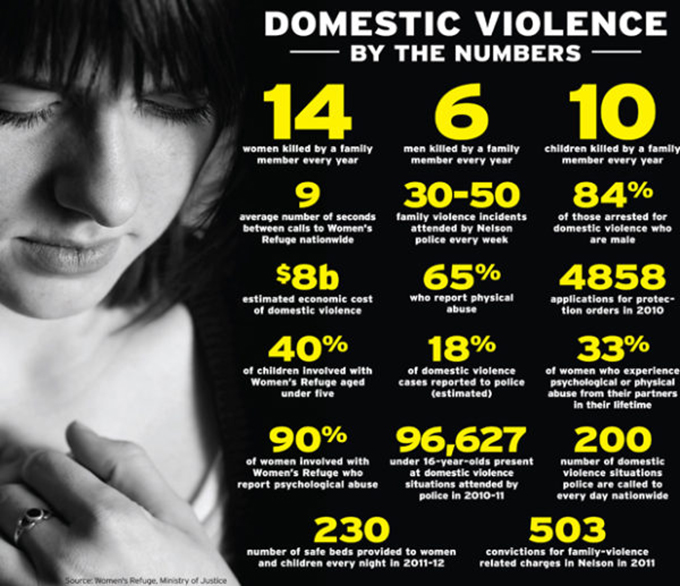New Zealand steps up campaigns through supporting non-government organisations and groups to raise awareness and groups and help support victims of domestic violence. But, writes Mike Mohr, of Asia Pacific Journalism Studies, in spite of a draft family violence law making its way through Parliament much more needs to be done.
Violence against women is an issue that has troubled Pacific communities for many years both in the islands and in New Zealand.
The United Nations has highlighted the issue of women experiencing violence in the Asia-Pacific region and has tried to improve the quality of life for women in troubled communities.
An estimated 68 percent of girls and women in the Asia-Pacific region are victims of violence, according to figures released by the UN.
READ MORE: Family violence: 525,000 New Zealanders harmed every year

The enormity of the situation in the region has led the UN to start initiatives in Asian and Pacific countries to combat violence against women and in New Zealand the Family and Whānau Violence Legislation Bill is hoped to “break the pattern”.
Ending Violence Against Women Programme (EVAWG) is an initiative that “aims to help women and girls live a life free from violence”. EVAWG is being implemented in nations regarded as high risk in the region with the hope of reducing the numbers of women being harmed.
New Zealand, a developed First World country, has had issues with domestic violence throughout its history, and the government has been raising awareness and providing assistance to NGO groups to help support victims of domestic violence.
Figures show New Zealand has a major problem with girls and women experiencing violence in all age groups.
‘OK to ask for help’
In 2016, between 33 to 39 percent of females experienced some form of violence in their life growing up in New Zealand. Also an estimated 79 percent of harmed women do not report their experience of violence.
The campaign “it is ok to ask for help” has provided a lifeline to victims who are seeking support for their love ones seeking help.
The most common form of violence in New Zealand is physical and sexual violence – women are more likely to be assaulted by an intimate partner than a random stranger, according Associate Professor Janet Fanslow of the University of Auckland as cited by the Women’s Refuge.
It has disappointed advocates in the frontline of the fight against violence aimed towards women that the most likely offender is someone intimately close to the victim.
Hun, a social worker based in South Auckland, believes the issue of domestic violence has reduced slightly over the past few years, and this is thanks to the raising of awareness in the community in South Auckland and through television campaigns.
Some low social economic areas in New Zealand are considered high risk for domestic violence.
Tackling a myth
Māori and Pacific communities in New Zealand are the most likely to suffer and become victims of domestic violence in their homes.
However, it is a myth to believe that violence against girls, women and domestic violence in general is a problem exclusively in low social economic areas, says Hun.
“It is occurring in every level of society in New Zealand.”
The devastation that domestic violence towards women has led to campaigns in New Zealand to reach out to both the victims of violence and the offender.
More financial resources are needed to fully engage the most affected communities in the country, New Zealand ranked in the top 5 in domestic violence in developing countries.
“More work needs to be done to drive the message home,” says Hun.
Promising improvement
Communities that have been targeted with campaigns over the years have shown promising improvement with less and less incidences of domestic violence being an issue.
“Preventing is better than fixing,” says Hun.
The most effective way to deal with domestic violence against women is to teach, inform and raise awareness in young people at an early age that violent behaviour is not acceptable in New Zealand society.
The current Labour-led Coalition government is prioritising family violence and addressing the issue with new legislation. It is at the top of the agenda for the government in the hope of reducing the problem.
Mike Maatulimanu Mohr is a student journalist on the Postgraduate Diploma in Communication Studies (Journalism) reporting on the Asia-Pacific Journalism course at AUT University.











































